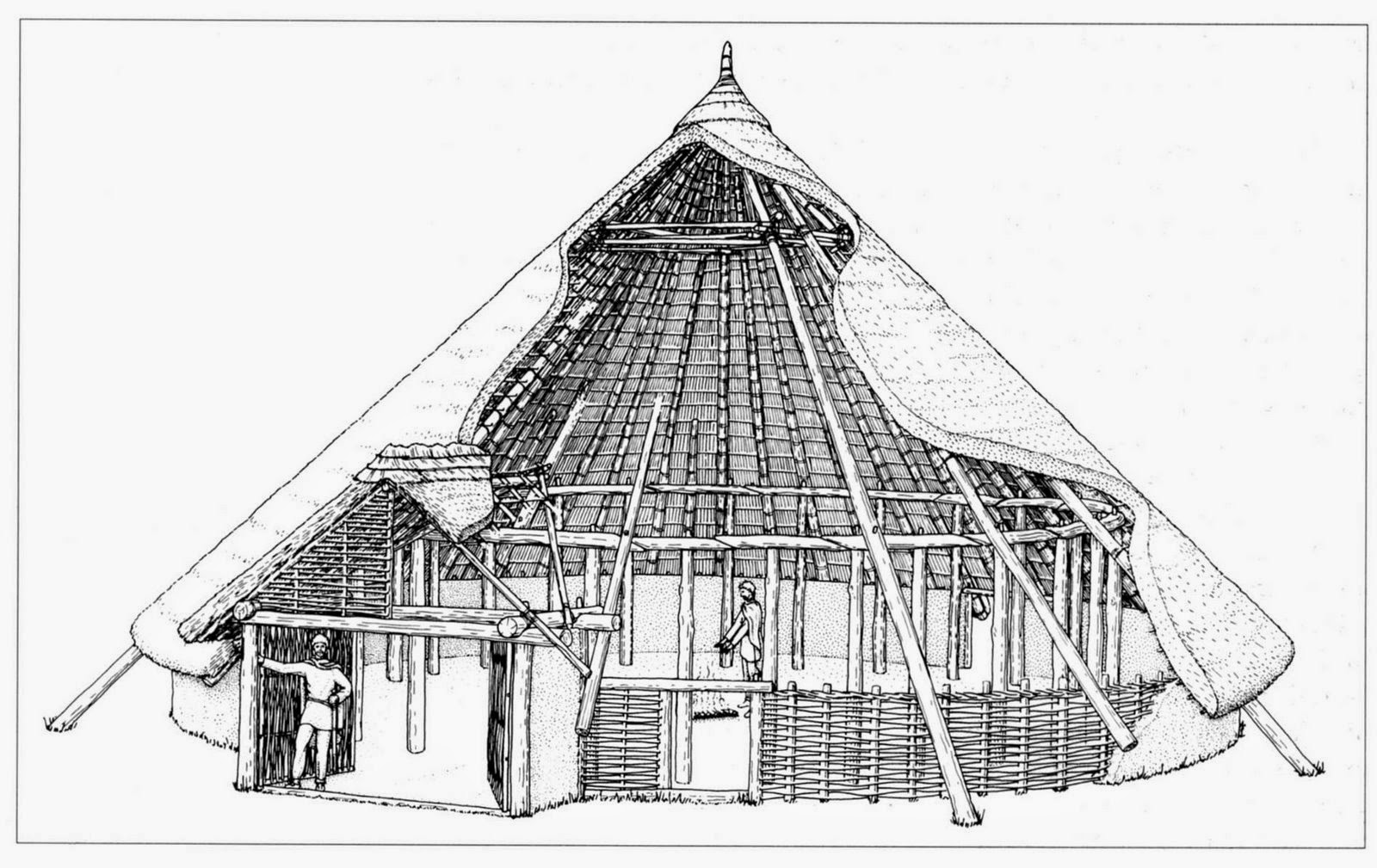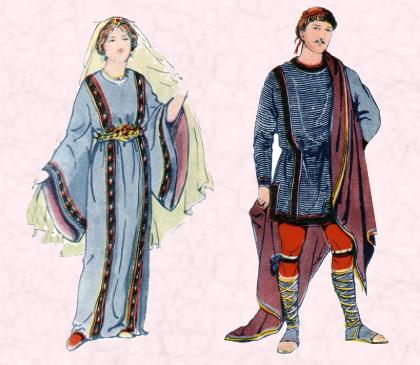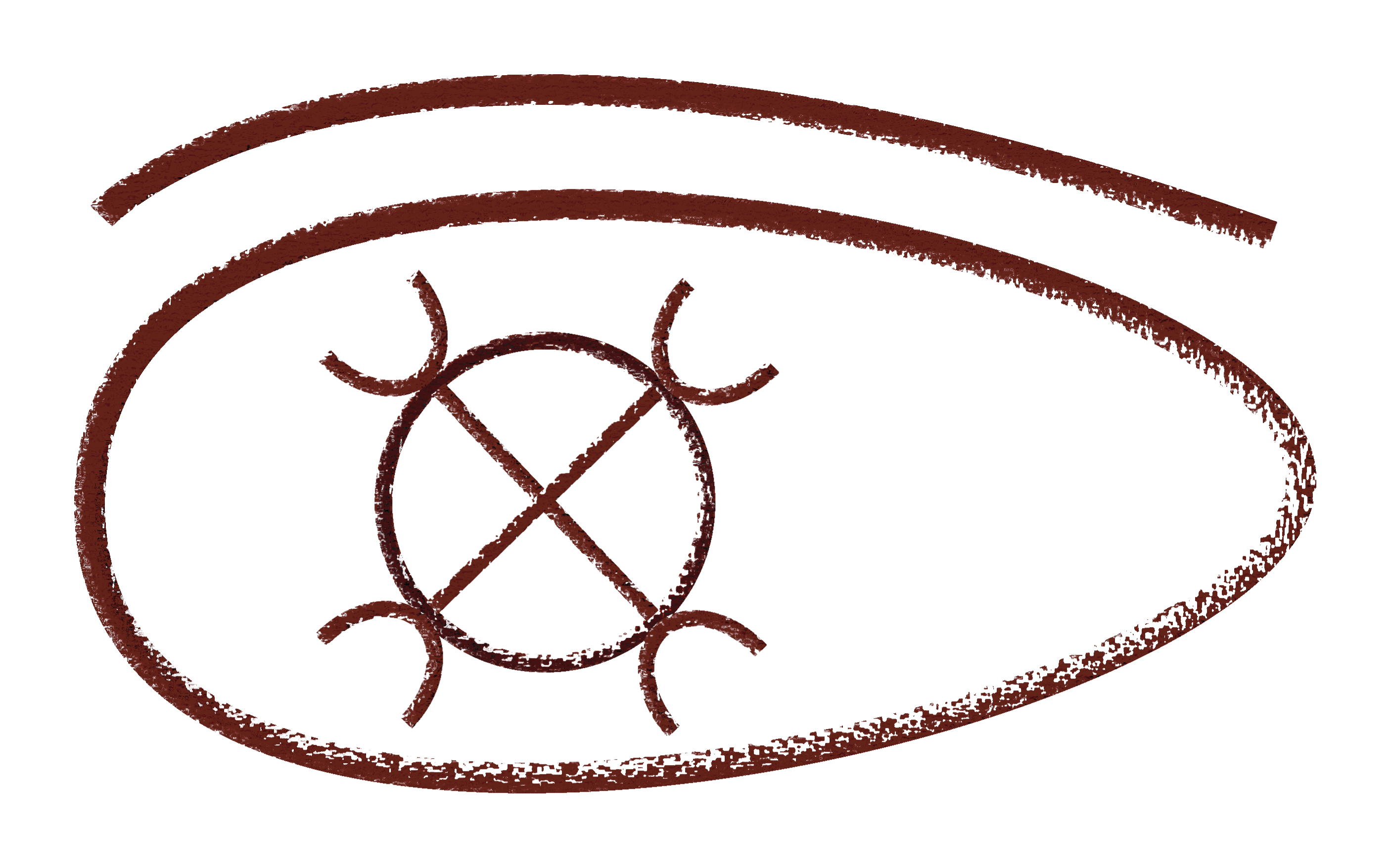The people of Wilderana, Wilder as they are often called, are imperial humans dating back 150 years. Though they are only imperial in name, as they differ from their fellow imperials so much because while their southern brethren evolved varied cultures, built sprawling cities and all an encompassing empire, the Wilder stayed relatively the same. Now do not assume that these people are all the exact same, for they are built into several different wilder tribes of their own similar cultures, but these will simply be the most common traits shared by all of them.
Names
At first one would assume a Wilder names to be a hybridization of an Imperial and Saxon-Deutsch name, but that is quite the contrary. The Saxon-Deutsch first names have changed little from the wilder names like Hans, Albertch, Gunther, Maximillion and Gretel being common in both cultures. As a sense of place became more important than surnames the Saxon-Deutsch dropped them and began to simply say where they were from. The southern imperials, mixed with the people of the southern lands combining their names together but keeping the same style of surname. With names flowing in a relaxed style ending often in vowels with double “I’s” the most popular form. Guess which surname is Wilder or Southern Imperial, Almorii or Germana, the answer is both. For Wilderana family and tribe are the same, and with first names often being widely varied especially with epithets being common they use their tribe as a surname.
Appearance
Due to a combination of militaristic lifestyle, high levels of protein year round and interbreeding with the more barbaric human tribes to the west, the Wilder look slightly different from their Imperial cousins. Their hair ranges from hues of blond, black and brown, with medium length hair and beards being the dominant style. The most common eye colors are gray and green. Having less sun year round in their latitude means they have paler skin than other imperials. The men’s chests are more barreled on average, with the woman having more chest in general than average. They are the tallest of Imperials; men averaging 5’ 11’’ and women averaging at 5’7’’. The people of Wilderana also tend to be leaner and muscular due to their harsher lifestyle.
Clothing
Generally men wear long-sleeved shirts or tunics, and long trousers, Clothes are made of wool or linen, with some silk being used by the rich. Cloaks are worn in the winter. Brooches and armlets were used, but the most famous item of jewelry is the torc, a neck collar of metal, sometimes gold. Women's clothes use the same materials and jewelry, but often focus on modest dresses with perhaps a veil, or long skirts and a blouse. Due to the lack of wealth disparity within their society all social classes dress the same with only ornaments as a possible indicator of wealth. A common pattern among the Wilder is the tartan, named after a sort of toga that used to be popular. It is set up in a checkerboard pattern and is most often used for cloaks, loose trousers, or skirts.
Cuisine
For these people food is often a social event in urban areas they invite neighbors over to share meals with them regularly, and in rural areas the community gathers in force around a large stew pot throwing their best produce into it, once a month. The average diet in Wilder is milk or berry juice, eggs and bread for breakfast. Lunch is cheese, with smoked sausage (or another form of meat). Supper consists of cooked vegetables, meat (sausage, ham or game meat) and a beer to wash it down.
Gender Relations
The Wilders are a patriarch society like the other Imperial cultures. Women are viewed in a positive light with kindness, compassion, cunning and virtue being the traits they are supposed to aspire to. In Wilderana women are allowed to hold offices, businesses and land freely. They can’t inherit land unless they are the only surviving family member. Women also play a more dominant role in public office than men, because offices require cunning. Military jobs and landholders tend to be a male dominated trade in the province. With business holding and labor jobs (primarily farming as serfs) are relatively equal in numbers. This doesn't mean that there aren't plenty of female warriors or male merchants its just that their ratios in these field favor one far more than the other.
Ideology
(Not though in Agorath they didn't use thralls in this point of time they still did. Thralls were captured from rival tribes and enslaved their children though are born free as members of the tribe. Also serfdom isn't practiced by them in this time frame as you simply work as a member of your tribe.)
Much like all Imperials there is a strong sense of honor, especially in warfare. The Wilder have an unwritten code of ethics that should be adhered too. 1) Don’t harm the injured, 2) Don’t bring battle onto consecrated grounds (cemeteries, shrines, and temples), 3) Don’t attack during a cease fire, 4) no poisoning of water sources, 5) refrain from cannibalism and 6) keep your oaths.
The concept of mortality intrigues the Wilders. They symbolically show this through festivals (or carnivals as they call them), huge eccentric displays in which whole communities party. The four festivals are the Spring (beginning of life), Summer (first half of life), Autumn (the latter half of life) and Winter (the end of life).
Writing
This writing is rather different from all others though it is speculated to be runic in nature. It reads vertically from bottom to top and left to right. The most notable feature is how there is always a line running through each phonetic of this script. This can be the most confusing part for all not already familiar with it because many characters are defined by which way the lines go through them. Luckily one can discern when a word begins or ends based on the elevation of a set of characters, so one word would be slightly higher then the next one, and the word following that slightly lower and so forth.
Religion
Religion in the Wilder culture is highly animist and decentralized.
Superstitions
In a world of magic and monstrous beings societies still form general phobias about their world and environment. One of the many superstitions amongst the people of the Wilderana province is that the sea is evil, the reasoning is due to their land focus in military matters. With only a handful of ports they see little use in a navy. The other is how drinking large amounts of sea water will cause dementia and eventually kidney failure in people. So while freshwater is considered life, saltwater is believed to be death.
They also hold cattle in higher regards than most cultures, while not sacred, cattle are often used as currency between villages and the friendlier barbarian tribes. This is because cows can be used to make multiple items and in larger quantity than other animals (due to their size), such as dairy products, dried dung for fire fuel, meat in harsh winters, intestines for sausages, leather and so on. So if a Wilder gives you a cow it would be the same as a dwarf giving you a chest of gold.
The final and most pervasive superstition in Wilderana, are spirits. Specifically spirits in objects, they believe that their weapons contain the souls of their ancestors. When a Wilder army marches they believe all previous wilder warriors march with them as well.
The same goes with shamans who will call on curses for you against your enemies, which asks for your own ancestors to strike out against your earthly foes. This is difficult because the targets' ancestors will fight to protect them. These beliefs have lead to many depictions of the Wilder afterlife being one of constant war. Still the worst act is for one to anger their own ancestors meaning that there would no longer be protection from the attacks of one's rivals' ancestral spirits.
All Wilders believe that an attack by these spirits is simply bad luck. It can go from stubbing one's tow to not being able to dodge a blow in combat. Perhaps the most extreme example is how the Tudonii's under the branch from Selwyn the Vile are now plagued by the western migratory people which is ravaging their kingdom.
Another major superstition is their belief in the soul being kept within the head of a person. They view it generally as a temporary prison on this world before the head deteriorates and the owners soul can ascend to their 'glorious afterlife'. Seeing how these Wilders hold firm that their opponents vengeful spirits may strike out at them they will often keep their foes' heads as trophies and even attempt to preserve them for as long as possible. The hope is that they hold that person's soul as captive to better stave off the wrath of the defeated's ancestors for a while longer, and to show one's power over that foe. Even orcs do not practice this and many of the Wilders' allies have viewed practices such as these in great horror and disgust.
Ancestor Stones
Ancestor stones are monolithic record holders for the Wilderana, though they put more emphasis on their importance. These stones are essentially used to mark the history of their ancestors, as primary sources. What is most confounding about them is not that these stones also have the Wilder ancestral writing scrawled over it as much as possible, but that they are set up in patterns. Often the stories are moved around in a line to be followed all throughout the stone's surface, and depict images accented by pigments. For all these stones' beauty they are difficult to understand which might be why those who own one take so much pride in these items, that and they are considered a direct link to one's ancestors.
Architecture

The first immediate aspect of Wilder architecture is the hill fort; which are fortified enclosures surrounded by ditches and walls. Inside there are circular stone dwellings with thatched roofs, laid out in neighborhoods and separated by streets and squares. Other longer buildings serve as places of reunion or worship, and some settlements even have steam baths. One of the most characteristic elements of the hill forts is their setting. They are usually located either on mountains, in elevated positions, or close to the coast. So that nature itself will provide them with defenses. These special locations mean that they also enjoy stunning views. Next are the duns which is a variation of hill fort. These forts are centered in large ponds or lakes, often times an extremely wide man made moat connected to a nearby water source. The point of these settlements is the same as that of the mountain hill fort, which is simply to create a natural defense for the settlement's inhabitants.
The vast majority of Wilder buildings are simply rounded hovels with a conical thatched roof. Most often the walls of these building are wood with mud or plaster insulation combined with a wicker weave pattern in the assembly. Other times stone for the walls but the wicker weave insulation is still used to prevent freezing in winter. The conical roofs often have ventilation at the top to allow smoke from a central hearth to leave, and melt snow on the roof during winter. These hovels also have a secondary ring that surrounds the inner hearth area, acting as an added barrier from heat loss and dividing parts of the hovel into other rooms.
None circular buildings are, as previously stated, meant for none residential purposes. For instance the main place wear the chieftain and council meet is designed after the Nordic great hall, with just more space due to it not providing lodgings for the chieftain and wilder aesthetics. The temple of the ancestors is also designed differently, as well as that of the courthouse. What is most interesting is the focus on elevation. These three main buildings are often set in the general vicinity of one another, around public plaza. The great hall covers the most land but is shortest; the courthouse has no corners to show equality for the people inside and is taller than the hall to show even chief's answer to the law; and the temple is the highest because all must answer to the ancestors, or god(s).
Government
Their government is tribal and extremely decentralized, with each tribe acting with a severe level of autonomy. Naturally this leads to some differences from place to place in how powerful the governmental body of a tribe is but some items pervade the whole of Wilderana. First is succession, rather than the agnatic-cognatic primogeniture style of most modern states these wilder use a cognatic tansitry system. Cognatic simply means that women can inherit on the same grounds as men. Tanistry means that someone related to the current chief must be elected by the tribe, making them the tanist. The best analogy would be a majority of the nobles in a kingdom saying they wanted their king's third cousin in charge next, and he would then be officially made crown prince. They tend to rule themselves through chieftains who keep a tribal council as advisors and administrators.
Next is the hierarchy of power. Wilderana uses a somewhat similar style to the feudal system so it has one large tribe, with smaller less powerful tribes under it, with weaker tribes underneath them. This is often referred to as the main tribe, major tribes, and minor tribes. Whoever controls the main tribe and the others is called the Grand Chief, which is essentially a king; the major tribes behave as dukes and are called High Chiefs; while the minor tribes are simply name Chiefs; in some cases there are smaller tribes underneath those which are proclaimed to be minor Chiefs. Wilderana is currently independent but falling apart due to migratory people and western invasions. Many have fled into northern Highathar under the banner of several Tudonii still loyal to the Empire.
They label these positions by the term seat. The seat of War is their marshal, this person often tends to be the tanist or champion of the chieftain. Seat of spirits is a clerical position where a notable priest is placed to ensure the chief doesn't offend the ancestors. The seat of goods is a mercantile position often acting as an ambassador of trade or tax collector. The seat of law is reserved for the highest ranking judge the tribe has, they are meant to keep track of all legal actions amongst their tribe. The seat of crops is given to someone who is particularly knowledgeable about food stuffs, an important thing when winters could kill many of the small tribes/families in Wilderana. Finally is the seat of subterfuge, this is a spymaster position; meant solely for an individual adept at intrigue.
Crime and Punishment
The Wilder law system is set up into three tiers, High judges (whose jurisdiction covers the whole province), Circuit Judges (whose courts are for local crimes), and Judgers (catches criminals and administers the sentences.) Most criminals are brought to the local circuit judge to be tried, with the high judges dealing with war crimes. Criminals can plead guilty and accept their punishment, or try to prove innocence. If they plead not guilty, they will perform an ordeal depending on the severity of the crime. Punishments for crimes are a) put them in the stocks, b) 30 lashes c) have the person crippled, d) hanged, e) castrated or f) impaled.
Ordeals are meant to allow the ancestors to decide the fate of a man; difficulty depends on the crime ordeal by cake for instance is often used for bread thieves (they eat a piece of cake, choke your guilty don’t and your innocent). The worst is ordeal by valor, an ordeal in which the one partaking in it must prove their valor in combat. They are thrown into an arena naked and without any weapons. After this they must fight wild animals, often cougars, or wolves, and any warrior who wishes to test their “valor” in battle. Very few throughout history have ever withstood this trial.
Extensive military training provides an unrivaled militia force capable of repelling most raids, which the vast majority of their warfare is. Their mobilized forces often fight with guerilla tactics, using smaller forces to distract or draw foes out of formation, before a larger force charges into the gaps. When forced to fight conventionally they form thick shield walls, in more confusing battles squads of soldiers form schiltrons, fighting back to back in a large circular formation. Each soldier carries a small sack around their back or waste, containing rations, medicine, whetstones and a miniature spade with a hatchet. The two tools are used to form trenches and wooden stakes, to surround their camps at night. These wilder armies have throughout history proven to be fierce and unafraid of death yet they've never been a cohesive force. Many units are formed around their different families (minor and major) so there is a lot of competition between units. This is a double edged sword because it increases their ferocity in battle to show one another up, yet it prevents these units from working together as a single entity. These wilder armies have often been beaten by internal rivalries first and external foes immediately afterwards.








